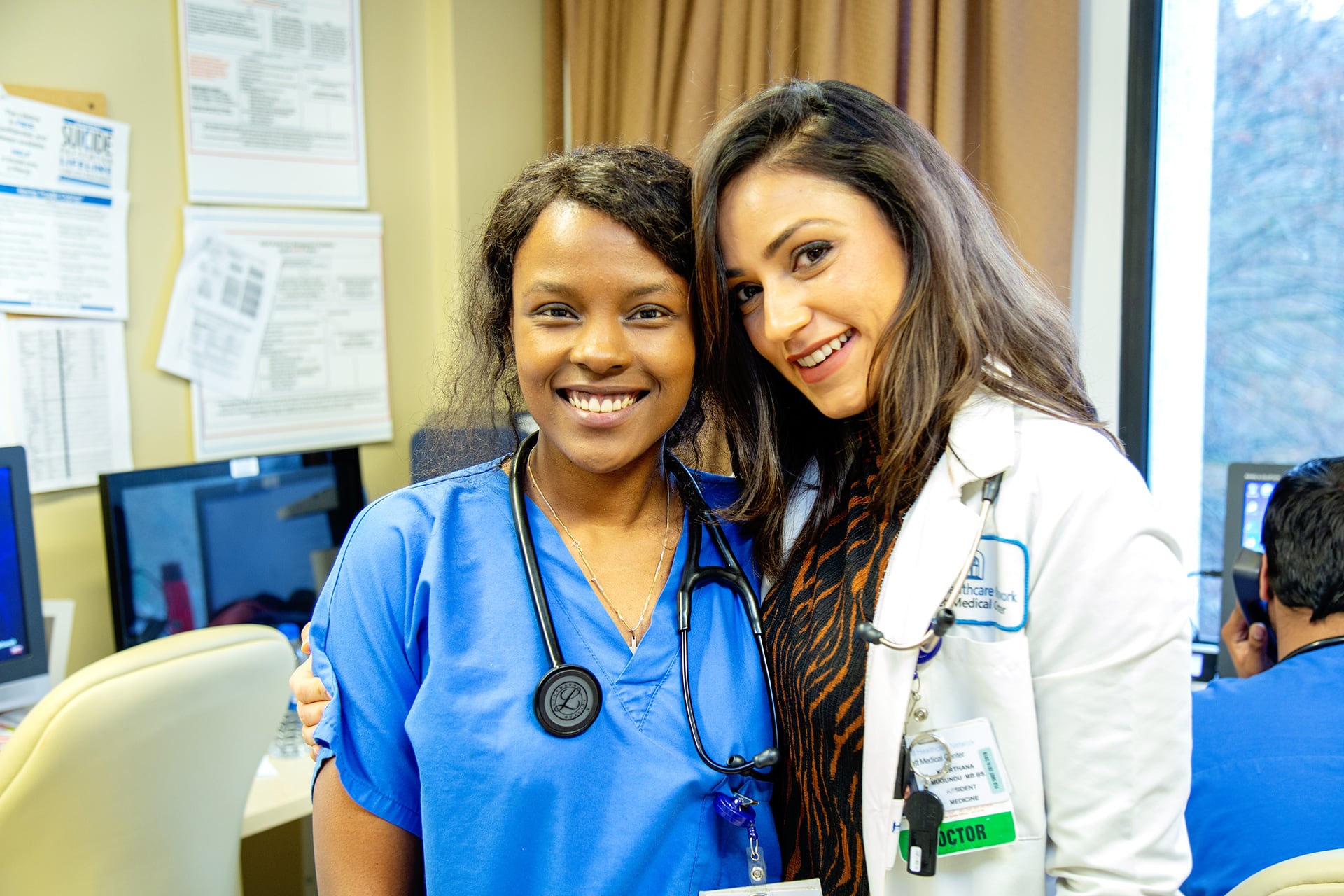School-Based Health
In rural central New York, many children live at or below the poverty level and in communities where health care is not available. Specifically in Otsego County, nearly 1 in 5 children lives below the poverty line. Children are among those least likely to receive routine health care, least likely to be insured, and most likely to require emergency medical service.
Recognizing this gap in health care coverage, Bassett started its school-based health program in 1992 to be the most effective means to deliver primary health services to the greatest number of students and to diminish health disparities in rural communities. Along with providing a much-needed service that can improve the quality of life for poor, rural children, the school-based health centers are the first line of defense against avoidable hospital admissions, thus saving state and federal money.
Bassett's school-based health program is the largest rural program of its kind in New York State, with 22 highly successful school-based health centers in fifteen school districts that ensure easy access to quality health care services for students from pre-kindergarten through 12th grade.
Bassett school-based health centers are located in Cherry Valley, Cooperstown, Delhi, Edmeston, Gilbertsville-Mount Upton, Laurens, Middleburgh, Milford, Morris, Richfield Springs, Schenevus, Sherburne, Sidney, South Kortright, Stamford, Unadilla Valley, and Worcester schools. The program, a vital part of the health care safety net for children, is managed by Bassett’s Department of Pediatrics. Pediatricians Chris Kjolhede, M.D., M.P.H., and Kerri LeBlanc, M.D., are co-directors of the program, and Jane Hamilton, R.N., is clinical manager.
Gifts to this program help support such essentials as refrigerators to safely house vaccines on-site and larger initiatives, like the development of programs that integrate mental-health, dental health, and primary care in one school-based setting.
Columbia-Bassett Medical School Program
Bassett Medical Center has a rich tradition as a center for learning as well as a reputation for excellence in patient care. Medical education has been a cornerstone of the organization’s mission since it opened as a small, rural hospital in 1927, and during the ensuing eight decades has evolved from a fourth-year elective program for a few students to a sophisticated joint medical school program with Columbia’s College of Physicians and Surgeons. The Columbia-Bassett program provides a course of study focused on ethics, evidence-based medicine, health care system management, and leadership for 40 exceptional medical students. The impact of the medical education program at Bassett has been significant—and a two-way street. While students, interns, and residents undergo their training here, they provide experiences, challenges, and new perspectives that enrich the Bassett experience for patients, physicians, and staff.
The unique proposition of the Columbia-Bassett Medical School Program is that it offers all enrolled students significant scholarship support. Easing the financial burden associated with medical school, debt for which usually exceeds $100,000 per student, enables more Columbia-Bassett medical school students to consider careers in primary care and careers in rural areas.
NYCAMH
In the early 1980s, two pulmonologists at Bassett, Drs. David Pratt and John May, shared an interest in researching occupational health and safety issues among New York's farming population. This initial work was known as the Bassett Farm Safety & Health Project. In 1988 their work received official designation by the New York State Legislature as the New York Center for Agricultural Medicine and Health (NYCAMH).
In 1992, NYCAMH became one of seven agricultural centers designated by the National Institute for Occupational Safety and Health (NIOSH), to be known as the Northeast Center for Agricultural Medicine (NEC). The NIOSH Centers, located in geographically designated regions, act by cooperative agreement to address pertinent and emerging problems related to occupational safety and health in agriculture, forestry, and fishing.
Over the years, NYCAMH has been fortunate to secure additional grant funding from New York State agencies, such as the Department of Health and Department of Labor, national sources such as NIOSH, NIH, CDC, as well as the W.W. Kellogg Foundation. This grant funding allows the center to carry out the research, education, and outreach activities that are directed toward promoting safer farmsteads and healthier farm families working in agriculture in the Northeast.
One of NYCAMH’s most popular services is its tractor rollover protective structure (ROPS) rebate program. Tractor overturns account for the greatest proportion of work-related deaths on farms and a significant proportion of farm injuries. ROPS provide a reliable source of protection for farmers involved in a tractor rollover. These structures are 99% effective in preventing injury or death when used with a seatbelt. The program provides 70% up to $865 off of the cost to retrofit an unprotected tractor with a ROPS.
UpClose
The UpClose Cardiac Surgery program has been delivered by the division of cardiac surgery at Bassett Medical Center since 2004. Each year, more than 1,200 students from area seventh-grade classes attend a three-hour session at Bassett that focuses on teaching the adoption and maintenance of heart-healthy habits.
Using an underlying theme of Consciously Connecting the Consequences of Choices, educators (including a cardiac surgeon, nursing personnel, and an exercise physiologist) introduce for discussion and didactic teaching the following concepts: how marketing techniques can lead young people to make unhealthy lifestyle decisions; the adverse health consequences of cigarette smoking; the benefits of regular exercise, and the consequences of fast food and snack-filled dietary habits.
The program is so named for the direct link it draws between early teen habits and the development of coronary artery disease (CAD), by presenting the basic physiology behind the risk factors of CAD. The curriculum details how the atherosclerotic cardiovascular disease begins at a young age both by the pathophysiology of atherosclerosis and the adoption of certain behaviors, and is highlighted by the presentation of either video footage from a coronary artery bypass operation or transmitting a live operation to the auditorium, during which the actual disease process is pictured.



